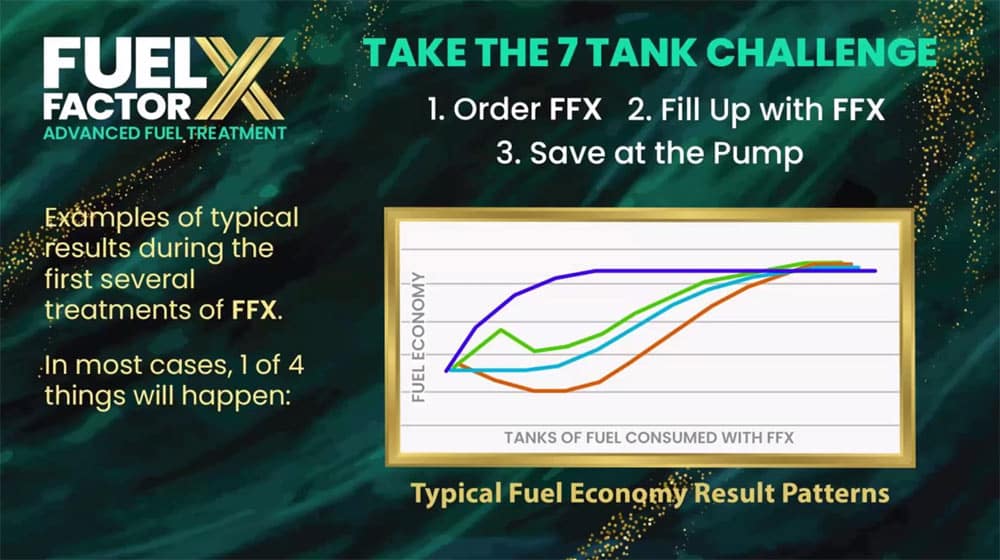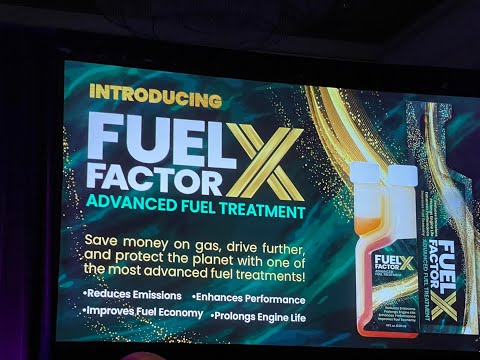In today’s fast-paced world, where energy consumption is at an all-time high, we often wonder how to make more sustainable choices. That’s where the Fuel Factor comes into play. This revolutionary solution offers a myriad of benefits that not only reduce our carbon footprint but also save us time and money. Fuel Factor is a game-changer in the automotive industry from increased fuel efficiency to enhanced engine performance. So, if you want to make a positive impact while enjoying the perks of advanced technology, look no further than Fuel Factor.
Improved Performance
Increased power output
Fuel factor has been proven to enhance power output in engines. By optimizing the combustion process, the fuel factor ensures that fuel burns more efficiently, increasing power. This translates to improved acceleration and overall performance of vehicles, providing a smoother and more enjoyable driving experience.
Enhanced fuel efficiency
One of the critical benefits of the fuel factor is its ability to improve fuel efficiency. By maximizing the combustion process, the fuel factor allows for more complete fuel burn, reducing wastage and maximizing the energy extracted from fuel. This means that vehicles can go further on the same amount of fuel, ultimately saving on fuel costs and reducing the environmental impact of driving.
Reduced engine wear
Fuel factor also contributes to reducing engine wear and tear. Providing a cleaner burn minimizes the formation of harmful deposits on critical engine components, such as fuel injectors and valves. This leads to less friction and wear, prolonging the engine’s life and reducing the need for costly repairs or replacements.
Cleaner Emissions
Decreased air pollution
One of the most significant benefits of the fuel factor is its role in decreasing air pollution. Ensuring a more complete combustion reduces the release of harmful pollutants, such as carbon monoxide and nitrogen oxides. This improves the air quality in the immediate vicinity and contributes to a healthier environment on a larger scale.
Reduced carbon footprint
Fuel factor plays a vital role in reducing the carbon footprint associated with driving. Improving fuel efficiency and reducing emissions helps minimize the overall amount of greenhouse gases released into the atmosphere. This is crucial in the fight against climate change, making fuel factors a sustainable choice for environmentally-conscious individuals and organizations.
Cost Savings
Lower fuel consumption
A significant fuel factor advantage is the potential for lower fuel consumption. By improving fuel efficiency, vehicles can achieve more mileage with less fuel, resulting in substantial cost savings over time. This is particularly beneficial for businesses with large fleets or individuals who rely heavily on their vehicles for daily commutes or travel.
Decreased maintenance expenses
In addition to reducing fuel costs, fuel factors can help decrease maintenance expenses. By preventing the formation of engine deposits, it minimizes the need for frequent cleaning or repairs. This translates to lower maintenance costs and fewer trips to the mechanic, saving time and money in the long run.
Enhanced Safety
Efficient combustion process
The fuel factor enhances combustion by ensuring fuel is burned more efficiently. This improves performance and enhances safety. Efficient combustion reduces the risk of engine misfires or sudden loss of power, keeping drivers and passengers safe on the road.
Less risk of engine failure
By reducing engine wear and improving overall performance, fuel factor helps minimize engine failure risk. This is particularly important in critical situations where reliable engine performance is essential, such as long-distance travel or emergencies. With fuel factor, drivers can have peace of mind knowing that their engines are operating optimally.
Environmental Impact
Minimized fuel waste
As mentioned earlier, the fuel factor improves fuel efficiency, minimizing fuel waste. This is not only economically advantageous but also positively impacts the environment. By using fuel more efficiently, less fuel is consumed, reducing the demand for fossil fuels and minimizing the extraction, refining, and transportation processes associated with fuel production.
Contribution to sustainable practices
Choosing a fuel factor also means opting for a more sustainable fuel solution. Reducing emissions and promoting fuel efficiency aligns with the global push towards sustainable transportation. As governments and organizations increasingly focus on reducing carbon emissions and adopting greener practices, using fuel factors demonstrates a commitment to a more sustainable future.
Extended Engine Life
Reduced engine deposits
One of the leading causes of engine deterioration is the accumulation of deposits on critical engine components. The fuel factor helps prevent these deposits’ formation, ensuring a clean and well-maintained engine. With fewer deposits, engines can operate smoothly over a more extended period, prolonging their lifespan and reducing the need for costly repairs or part replacements.
Less frequent part replacements
By reducing engine wear and minimizing the formation of deposits, the fuel factor ultimately leads to less frequent part replacements. Critical engine components, such as fuel injectors and valves, can last longer and remain in optimal working condition using fuel factors. This saves on replacement costs and reduces vehicle downtime and inconvenience.
Improved Fuel Stability
Longer fuel storage lifespan
Fuel factor enhances fuel stability, extending the lifespan of stored fuel. This mainly benefits industries that rely on large fuel storage tanks, such as agriculture or construction. With improved fuel stability, there is less risk of fuel degradation over time, ensuring that the stored fuel can be used when needed without any adverse effects on engine performance.
Reduced fuel degradation
Fuel degradation is a common issue that can affect the quality and performance of fuel. However, fuel factor helps to mitigate this problem by minimizing fuel degradation. This is achieved through the prevention of oxidation and the formation of harmful compounds in the fuel. By preserving fuel quality, fuel factor ensures optimal engine performance and reliability, ultimately saving money on potential fuel-related issues.
Reliable Cold Weather Performance
Prevention of fuel gelling
Diesel fuel can often gel in cold weather conditions, causing engine performance issues and potential damage. Fuel factor addresses this problem by preventing fuel gelling. Lowering the fuel’s freezing point ensures fuel flows smoothly, even in frigid temperatures. This is particularly important for individuals and industries operating in regions with harsh winter climates.
Promotion of easy engine starts.
Another benefit of fuel factor in cold weather is its ability to promote easy engine starts. By providing a cleaner burn and optimizing the fuel combustion process, the fuel factor ensures that engines start smoothly, even in low temperatures. This reduces the risk of starting issues and allows for a more reliable and hassle-free driving experience in cold weather conditions.
Flexibility in Fuel Selection
Compatibility with various fuel types
Fuel factor is compatible with various fuel types, making it a versatile choice for different applications. Whether gasoline, diesel, or alternative fuels such as biofuels or ethanol blends, fuel factor can be used across a wide range of fuel options without compromising its effectiveness. This flexibility allows users to continue using their preferred fuels while benefiting from the fuel factor’s advantages.
Adaptable to different blends
As the demand for alternative and blended fuels increases, fuel factor remains adaptable to different fuel blends. Whether it is a higher ethanol content or biodiesel blend, the fuel factor can optimize combustion, ensuring maximum performance and efficiency. This adaptability makes fuel factor a future-proof solution that can keep up with changing fuel trends and requirements.
Mitigation of Fuel Contaminants
Reduction of impurities and debris
Fuel factor reduces fuel contaminants, such as impurities and debris. By ensuring a cleaner fuel burn, it helps to minimize the presence of harmful particles in the fuel system and engine. This reduces the risk of clogging or damage to critical components, such as fuel injectors, and improves fuel quality.
Enhanced fuel quality
The fuel factor significantly enhances fuel quality with reduced fuel contaminants and improved combustion. This is important not only for engine performance but also for overall vehicle reliability. High-quality fuel ensures the engine operates at its best, minimizing the chances of unexpected breakdowns or costly repairs. Additionally, enhanced fuel quality contributes to a smoother and more enjoyable driving experience.
In conclusion, the benefits of the fuel factor are numerous and impactful. From improved performance and fuel efficiency to cleaner emissions and cost savings, fuel factor offers a comprehensive solution for individuals and businesses. With its positive impact on safety, the environment, and the overall lifespan of engines, the fuel factor is a valuable addition to any fuel regimen. By promoting reliable cold weather performance, flexibility in fuel selection, and mitigating fuel contaminants, fuel factor is a reliable and effective option for optimizing fuel usage and achieving optimal engine performance.







